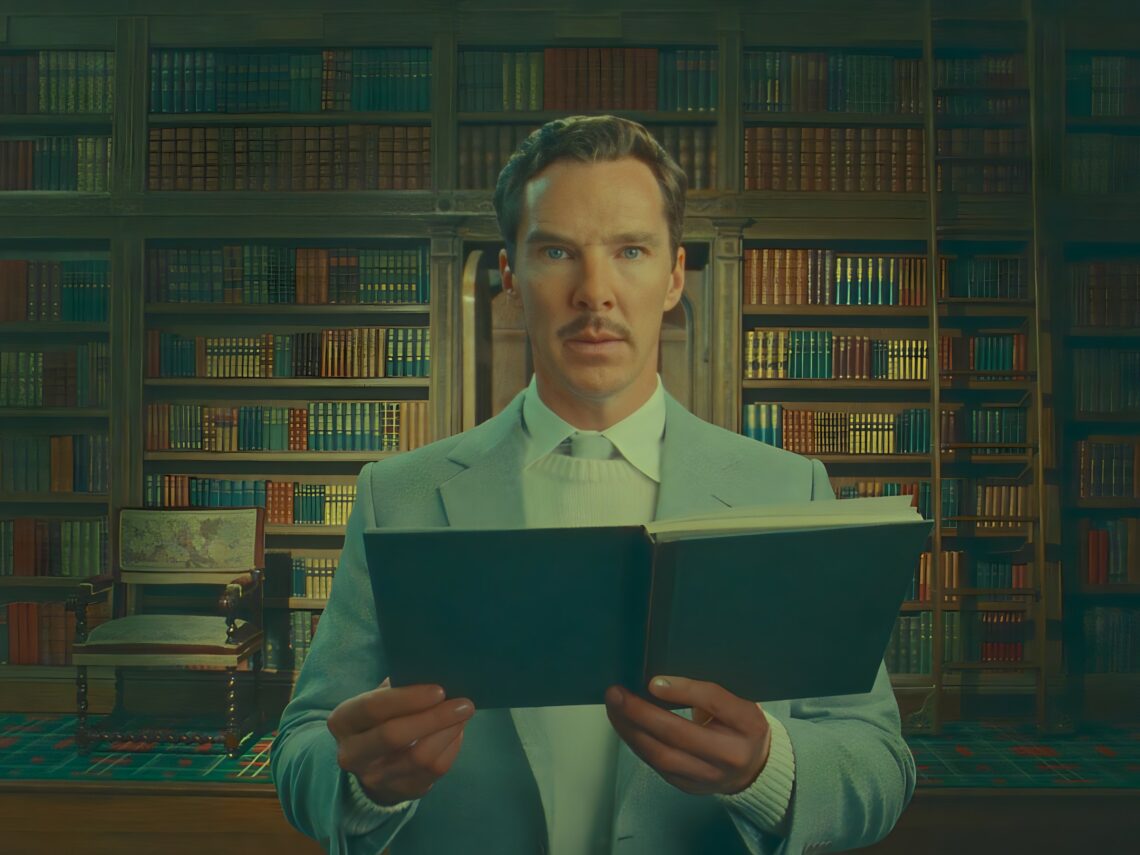The American filmmaker Wes Anderson has always been a master of crafting cinematic worlds that are as beguiling as they are surreal. With The Wonderful Story of Henry Sugar, Anderson has managed to create something stunningly engaging and hypnotic. But it has its flaws.
This adaptation of Roald Dahl’s short story weaves together a narrative in under 40 minutes that breaks the boundaries of cinema as well as theatre and becomes a mesmerising wonder of its own kind. It all works till it doesn’t. From the very beginning, Anderson’s film envelops you in its mood. This is, after all, a story within a story within a story within a story, within—you guessed it—another story.
Anderson’s The Wonderful Story of Henry Sugar opens with Ralph Fiennes as Roald Dahl, taking us through his modus operandi before he starts narrating the extraordinary tale of our titular Henry Sugar. As swift as the moving sets, the narration shifts from Dahl to Henry Sugar (portrayed by the delightfully charming Benedict Cumberbatch), a man of generational wealth with a penchant for gambling.
Then again, the scene shifts from Sugar’s magnificent window view to his library, where he stumbles upon a mysterious book with the anecdote of the man who could see without his eyes, named Imdad Khan (Ben Kingsley). With this, yet another narrator takes over, Dev Patel’s Dr Z.Z. Chatterjee recalls his encounters with Khan, before the baton passes to Kingsley, who narrates his own story, and is then overtaken by Richard Ayoade’s The Great Yogi.
The casting adds another element of camp. Yes, camp. It is not a word often associated with Anderson because camp is generally misunderstood to be all kitschy and gaudy. Anderson’s highly stylised aesthetic, often described as quirky and idiosyncratic, generally tends to be earnest and sincere. Here, it is intentionally exaggerated and it becomes humorous because of it.
Each actor plays dual roles. Benedict Cumberbatch is Henry Sugar but also his makeup wiz and closest confidant, Max Engelman. Ralph Fiennes is Roald Dahl as well as The Policeman, who sets Sugar on the path of philanthropy after rebuking his stupidity, almost like a Threshold Guardian. Dev Patel is the clinically dry Dr. Chatterjee as well as Sugar’s accomplice in altruism, John Winston. Richard Ayoade is Dr. Chatterjee’s colleague, Dr. Marshall, as well as The Great Yogi, who teaches Khan how to see without his eyes. Lastly, Ben Kingsley is Imdad Khan, the man who can see without his eyes, as well as the Dealer duped by Sugar’s second sight.
Within the theatricality of The Wonderful Story of Henry, we also get the blended form of filmmaking, where the spaces are real and unreal at the same time. Anderson does not simply place the camera in front of his fourth-wall-breaking narrators and the moving set pieces. He also leaves us alone as the narration continues and the characters walk out of frame. We listen to the story while looking at a background canvas—one reminiscent of Henri Rousseau’s The Dream, and are left with just our imagination. You feel quite like you do when listening to an audiobook while staring at a static wallpaper. The sound effects add to the ambience, but ultimately, the imagination is yours. This is theatre, but this is also not theatre.
A very colonial Wes Anderson hangover
Whilst he crafts some moments of cinematic magic, it cannot be ignored that there is this very colonial aesthetic that Wes Anderson has romanticised in many of his past works, most prominently in The Darjeeling Limited. It is not meant to discomfort the average viewer, but even in The Wonderful Story of Henry Sugar, the story drips with brightly lit, symmetrical, pastel-coloured orientalist strokes.
This Roald Dahl story is a retelling of the imperialistic white man’s greed but here it isn’t presented that way. Sugar takes something that is not his, from a closed practice of a culture he does not belong to, and builds on it for personal gain. But an awakening happens along the way, leaving Henry Sugar a bounteous humanitarian for the ages, thus this becomes the ultimate capitalist fairytale. Anderson’s vision of Dahl has always been very sanitised, as it is here.
But another way of looking at it, the one intended, is that The Wonderful Story of Henry Sugar, at its core, is a story of transformation and redemption. It might not be up there with the filmmaker’s very best works, but it is indeed a worthy 40-minute venture for the small screen.
